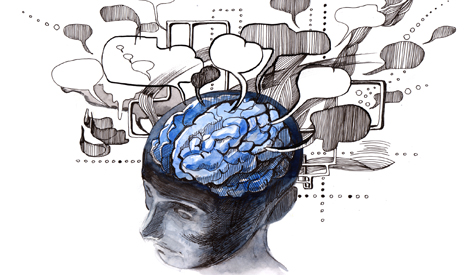
“I cannot read that,” you lament. “It is longer than 140 characters and there is no CTRL F in books.”
Our brains have been wired to glance at Instagram bio’s to know a person, skim Sparknote plot summaries to read a book, and read concise article titles to understand the gist of the news. We live in an age of distraction.
Have you already moved on?
Despite popular conception, distractions are not bad. “As long as our attention is as divided when we have to recall a motor skill as it was when we learned it, we will do just fine. Most learned motor tasks– driving, playing sports or music, even walking again after injury– occur with other things going on.” Researchers at Brown University found. Distractions are instrumental in helping us learn.
Regardless, we live in a constant stream of consciousness. Our thoughts run in one direction until we get bored or occupied. Of course, this is partly a natural component of human behavior. If we see a field of green grass and a red apple among it, our attention is captured by the red apple. However, placing “the millennial” generation of teens now against generations earlier shows that our attention spans today seem to be getting smaller and smaller.
Perhaps, you are distracted now.
A recent lengthy Microsoft study seeking to understand the impact of technology on human behavior found that the human attention span has fallen from 12 seconds in 2000 to 8 in 2015. We have essentially become used to spending a few seconds to mull over thoughts before moving onto something else. Never taking breaks, we are constantly thinking about one thing before moving onto something else.
Are you bored yet?
Of course, this does not necessarily mean that people are much smarter than people back then. Our form of processing information has changed. Before the age of digital technology, people were forced to be entirely focused on large books. Now, we are able to process multiple snippets of information at a rapid pace.
There are plenty of obvious negative arguments about our stream of conscious brains (focusing is difficult, retaining information becomes muddled, contemplation is almost dead.) But, it is important to note that this mental change allows for a society that is able to quickly process short bursts of information to have some form of “worldly knowledge” especially when information has already been mass produced through 140 character tweets and emojis.
Of course, this is not an answer to the declining attention spans and increasing distractions society seems to be driving towards, but it does introduce a positive spin on our changing learning ethics.
Did you make it to the end?



